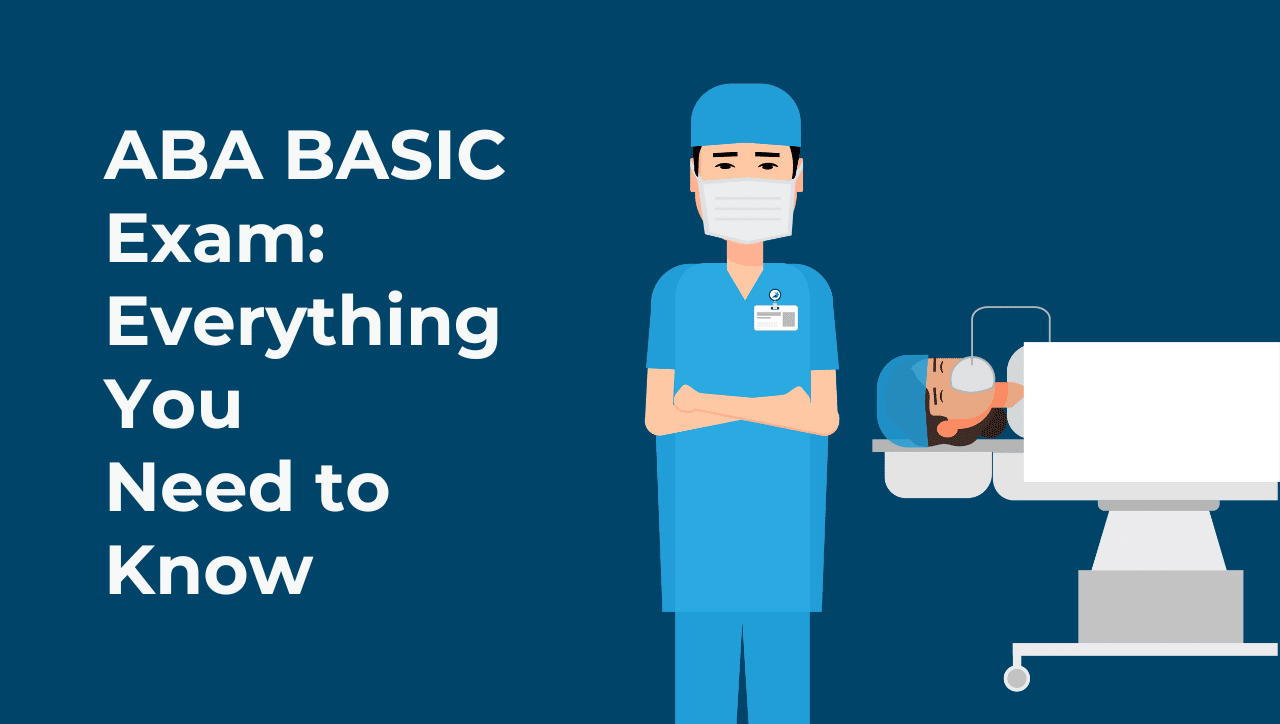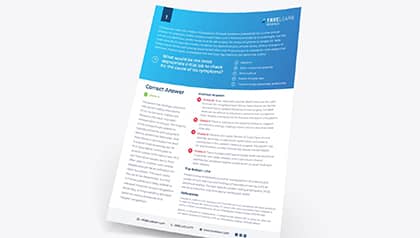How to Keep Up with the Competition to Match into Anesthesiology
Match Day is one of the most unforgettable milestones in a physician’s career. On the third Friday of March every year, thousands of applicants nationwide find out their residency placement.
There’s no better feeling than matching into your preferred specialty. It’s a huge accomplishment, especially if you’re interested in one of the more competitive specialties. Medical students who want to match into an anesthesiology program may need to take extra strides to stand out above other applicants.
In order to keep up with the competition, you’ll want to start planning now. Let’s delve into how to make your application stand out in a way that increases your chances of matching into anesthesiology.
How competitive are anesthesiology residency programs?
Anesthesiology is not the most competitive specialty, but it is considered to be in the top 10. In 2025, the National Resident Matching Program (NRMP) had a record-breaking number of applicants. Match data shows that 1,804 of 1,805 anesthesiology positions were filled. 87% of MD and 75% of DO seniors who selected anesthesiology as their preferred specialty were matched.
The 2024 Match data is a great indicator of the characteristics that help seniors match with their preferred specialty. U.S. DO seniors who matched to anesthesiology had a mean USMLE Step 2 CK score of 251 and a COMLEX-USA Level 2-CE mean score of 606. For U.S. MD seniors, the mean USMLE Step 2 score was 252.
While other characteristics, such as research and work experiences, played a factor in the MATCH, a high USMLE Step 2 CK or COMLEX-USA Level 2-CE score is key to being competitive and matching into anesthesiology. View the full report to see how you can stand out.
Anesthesiology residency requirements
An anesthesiology residency is three to five years long, and many programs utilize the NRMP to fill open resident positions. The NRMP requires you to use the Electronic Residency Application Service (ERAS) to submit the following materials:
- CV
- Personal statement
- Letters of recommendation
- Dean’s letter or MSPE
- Medical school transcript
- COMLEX and/or USMLE transcript
You’ll also need to select your top-ranked choices. Explore anesthesia residency programs in your state to find yours.
Advice for your residency personal statement
Writing a personal statement is a challenging feat, but it can be the ticket to your dream residency program. Use the following tips to help you write an effective, cohesive message.
Review examples
To get started, we highly recommend reviewing examples online or from your peers. This will help you get an idea of how to structure your statement. A go-to writing strategy is starting your statement with an engaging hook. A hook is a great way to engage readers in your essay. The better your hook, the more they’ll want to keep reading.
Be a storyteller
Chances are, you’ve heard this before! Show, don’t tell. Your personal statement for anesthesiology residency shouldn’t just repeat what’s in your CV. Instead, highlight your passion, goals, and skills in a clear and engaging way. Be descriptive and demonstrate why you chose anesthesiology.
Make sure it captures who you are
A personal statement should showcase what makes you unique. Many medical students are hard-working and intelligent, so what about your experience sets you apart from your peers? If you’re unsure how to spotlight your star quality, consider seeking guidance from a mentor or peer. They might identify something special about you that you haven’t considered yet.
Get feedback
It’s likely you’ll revise and revisit your statement multiple times. That said, getting a fresh set of eyes to review it can be helpful. Have an objective third party evaluate your statement and give honest, constructive feedback. This can help you put the final touches on your statement and improve it.
Want to keep working on your personal statement? Watch our free webinar, re Kamran M. Mirza, MD, PhD, Professor of Pathology Education at Godfrey D. Stobbe, shares what he looks for in the applications he reads.
3 Tips for acing the residency interview
Interviews are nerve-wracking, but the right preparation can help you beat that pesky anxiety and become a memorable applicant. Here are a few tips on how to ace your interview!
1. Do your research
Each anesthesiology program is different. Ensure you conduct thorough research and gain a basic understanding of what the program has to offer. This will help you answer the common interview question, “Why are you interested in this program?” and also prepare you to ask questions at the end of the interview.
2. Practice interview responses
Anesthesiology residency interview questions differ from program to program, but you’ll likely encounter these basic three:
- Tell me about yourself
- Why are you interested in our program?
- Describe a time you’ve overcome adversity.
We recommend practicing your responses using the STAR method, which stands for Situation, Task, Action, and Result. Rehearsing your answers will help you avoid having long-winded replies and ensure you’re demonstrating your abilities in a clear, succinct manner.
3. Make a good first impression
First impressions matter. Arrive on time, dress professionally, and make eye contact with your interviewer. They expect some nervousness, so don’t be afraid to be yourself. This is your chance to let your personality gleam and glisten!
Want more advice? Watch our free webinar, where Dr. John McPherson, Professor of Medicine and Director of Internal Medicine Residency at Vanderbilt, shares insights on the entire interview process.
Taking the next step: Attend the 2026 Match Day Summit
Want to increase your chances of matching into anesthesiology? We have the perfect event for you! The 2026 Match Summit is a free virtual event that connects you to residency program directors and current medical residents. They’ll offer their expertise and guidance to boost your chances of getting a match.
Topics include ERAS applications, interview prep, personal statements, preference signaling, the SOAP, and more. Join us July 30–August 2, 2025, to hear from current residents, fellows, faculty, and Program Directors and gain insights to take control of your anesthesiology Match journey.
And after you attend Match Day next year, come back and try TrueLearn’s anesthesiology question banks to prepare for your ABA exams!


